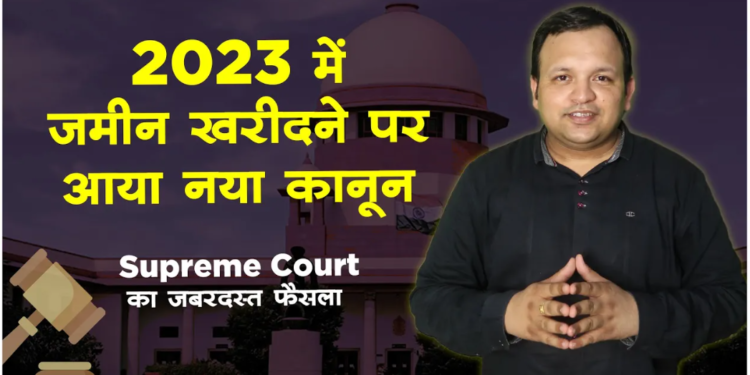Introduction–
Are you considering purchasing a property? Will the property be acquired through a will, Power of Attorney, or an Agreement to Sale? This blog will delve into the Sale Agreement, Sale Deed, Power of Attorney, Affidavit, Will Deed, and other relevant documents necessary before buying a property.
Case – Shakeel Ahemd v. Syed Akhlaq Hussain, 2023
To learn more about the topic, read the blog till the end, and if there lies any more doubt, feel free to reach out to us at; https://thelegalshots.com/legal-opinion/
Brief Facts of the Case-
In this case, A filed a Civil Suit for Possession against B, claiming ownership based on a Sale Agreement, Will Deed, and Power of Attorney. B, however, argued that the documents provided by A were unregistered and asserted ownership based on a gift from a brother.
The Trial Court ruled in favor of A, a decision upheld by the High Court on appeal under Section 96 of the CPC. B then appealed to the Supreme Court, arguing the Trial Court and High Court decisions were flawed for several reasons:
I. The documents presented by A were unregistered.
II. Even if registered, they would be invalid under Section 54 of the Transfer of Property Act, 1882, as no Sale Deed existed.
III. The will presented was invalid as wills are effective only after death.
A countered, citing the precedent of Suraj Lamp Industries (P) v State of Haryana & Anr on 11th October, 2011, which clarified that the title would be transferred only after a valid sale deed, effective from 2011 onwards. The property in dispute was purchased before 2011, making this argument invalid.
Supreme Court Judgement-
The Supreme Court first addressed the issue of registered and unregistered documents, stating that as per Section 17 and Section 49 of The Registration Act, 1908, unregistered documents have no legal value and cannot be used for legal relief.
Regarding the transfer of title through a Sale Agreement, the Supreme Court cited Section 54 of the Transfer of Property Act, stating that title can only be transferred through a Sale Deed, not through an Agreement to Sale.
The Supreme Court also clarified that a Will is effective only after death and that a Power of Attorney is not a valid document for property transfer.
Consequently, the Supreme Court set aside the orders of the Trial Court and High Court.
Conclusion-
It is crucial for property buyers to understand the legal requirements and implications of the documents involved in property transactions. The case of Shakeel Ahemd v. Syed Akhlaq Hussain highlights the importance of ensuring that all necessary documents, especially the Sale Deed, are properly executed and registered. The Supreme Court’s ruling underscores the significance of adhering to legal formalities, as failure to do so can result in the invalidation of property transactions.
To understand more such complex law in simple ways, stay connected with www.thelegalshots.com .
If doubts still persist, contact our Legal Experts at https://thelegalshots.com/legal-opinion/




